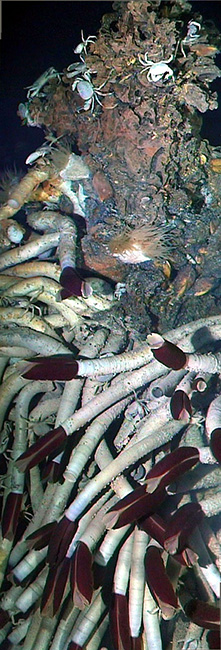 Individual responses to environmental change
Individual responses to environmental change
Developmental ecology
Evolution of plasticity
Community & population responses through dispersal
Episodic dispersal events
Disturbance Ecology
International development in coastal communities
The Adams Larval Ecology and Development Lab integrates across scales of organization and disciplines – ecology, physical oceanography, developmental biology - to consider how larval interactions with their changing environment contribute to species and community resilience. We focus on the larval stage of marine invertebrates (and sometimes fishes) because it is ecologically critical, developmentally constrained, and subject to natural selection. Larvae may be a key mediator of species adaptation and persistence through dispersal and individual responses. The importance of resolving the linkage between organisms and their environment is increasingly important to predict organismal as well as ecosystem responses to climate change and improve marine resource management.
The environment is predicted to undergo directional changes, such as rising temperatures and decreasing pH, to which progressive adaptations may be possible, as well as to change in the scale of environmental variation, such as more severe and frequent weather events, to which directional adaptations may not suffice; instead, greater plasticity on ecological timescales may be required. Thus, the Adams Larval Ecology and Development Lab focuses on individual and community responses to episodic events, environmental variability and disturbance within a lifespan.